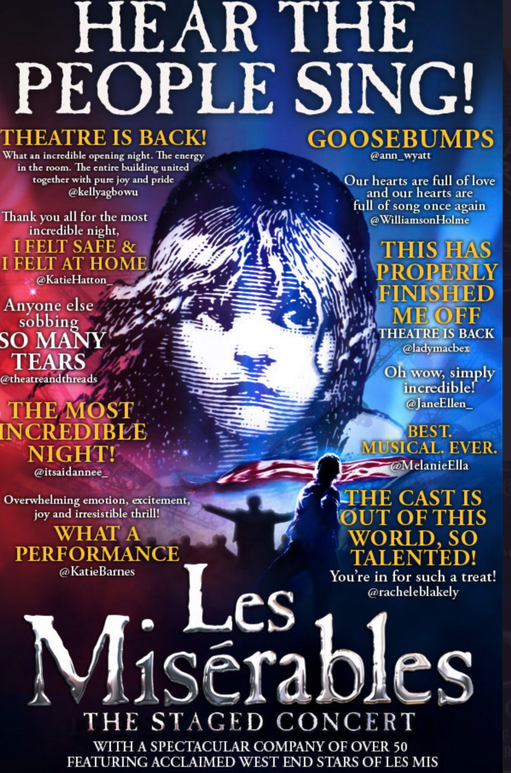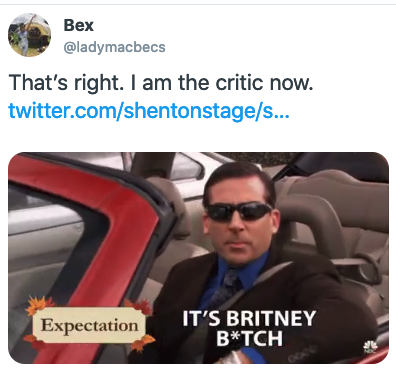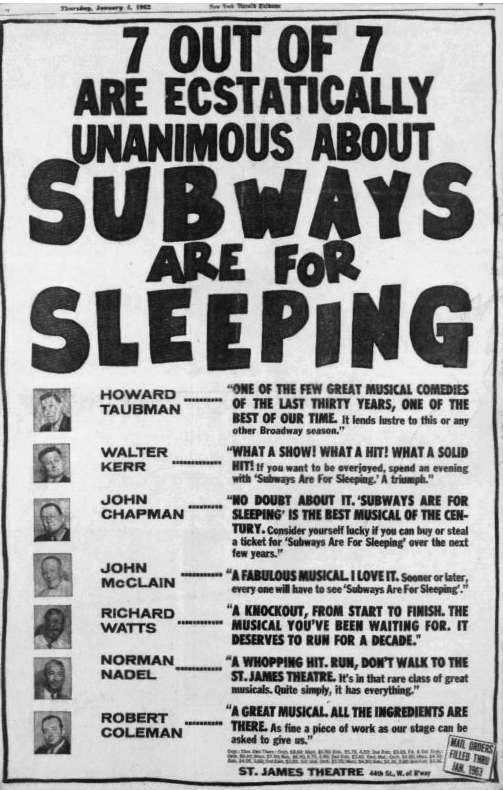Is the public being duped by the quotes in ads for the West End’s Les Miserables?
There’s a long tradition of ‘Quotes ads’ for West End shows — plastering a full page in one of the papers with quotes from the reviews, preferably verbatim and not doctored, to prove that a show has been critically endorsed.
In March 2013, when The Book of Mormon first transferred to the West End, its original Broadway producer Scott Rudin (who has now taken a back seat on his shows, after revelations of his serial bullying of underling staff) and his London producing partner Sonia Friedman took out double page ads in the London papers full of quotes before the show even opened, by using public tweets that they’d even openly solicited via a “I love Mormon” hashtag.
As I wrote at the time in a column for The Stage, that technique “smartly set them in a positive frame of reference from the outset (You’d hardly tweet a negative comment around that hashtag).” And I pointed out,
“So critics were actively relegated to the sidelines as an insurance policy against their possible disdain; it wouldn’t necessarily matter what they said anymore. As it is, their further endorsements led to another flurry of quotes ads lending support to what the public were already apparently saying.”
And as I added,
“There’s no question that the critical quotes did, at least, carry more authentic weight; you know who and where they come from, rather than the anonymous flurry of Twitter. Still, Twitter is changing the game, including mine, where I post a brief tweet (or series of them) the moment I get home from an opening.
It used to be that critics would publish what used to be called ‘overnight’ reviews and would routinely be seen scampering up the aisle the moment the curtain came down to file a notice that would then be published in the next morning’s papers. Now, however, I’m publishing an instant response on my own editorial channel; and other outlets like the Arts Desk don’t wait till the next morning – they simply post their reviews online the moment they’ve written them within a couple of hours of the curtain falling.”
But in yesterday’s Daily Mail I noticed that the concert production of Les Miserables, currently running at the Gielgud, has by-passed the critics entirely — who were not invited to review the concert staging — and relied on ‘audience’ quotes, under the banner headline, “Hear the People Sing!”

Except that the first quote at the very top left of the page isn’t from an audience member at all, but actually a performer in the show, who tweeted this:
Well, she would say that, wouldn’t she? Just as Mandy Rise-Davies famously said in the course of Stephen Ward’s trial at which he was found guilty of living off immoral earnings, as she was quizzed about Lord Astor’s denial of having an affair with her or even having met her, she tartly replied, “Well he would, wouldn’t he?”
This sent me on a chase around the other quotes in the ad.
- @KatieHatton_ is actually an account that hasn’t tweeted since April 5, 2016 (so a long time before this production even existed).
- @theatreandthreads and @itsaiddannee_ are accounts that twitter says “doesn’t exist”
- @KatieBarnes and @ann_wyatt do exist, but “Katie” and “Ann” have zero and 7 followers respectively and haven’t tweeted a thing
- @WilliamsonHolme are an actors’ agency, whose client Ebony Jonelle is in the show — and their full tweet is as follows:
- @Ladymacbex I can’t check, as only approved followers can see her tweets — she only has 20 followers, though, so I’d be surprised that one of them is the Les Mis marketing company. There is, however, a @ladymacbecs, who tweeted a witty reply to me, but whose quoted tweet I can’t locate:

- @JaneEllen_ tweeted this separately (so I assume the quote is legit, though I can’t find it on her timeline myself)
- @rachelblakely’s account says: “Account suspended. Twitter suspends accounts which violate the Twitter Rules.
So just how legit this ad’s quotes really are is thrown into serious question.
Of course, mischievous producers have been known to subvert critics’ words when they quote them. Or, in the case of David Merrick, the most shameless shaman of Broadway producers ever, finding seven people who shared the exact same names as New York’s leading newspaper critics of the day, and publishing THEIR opinions of his production of the 60s musical Subways are for Sleeping under their own names.

He even included photographs of each contributor, which is how the ruse was uncovered, as Richard Watts, the theatre critic, was a white man — whereas the Watts that was shown was black.
The misleading ad only managed to run in one edition of one paper, but Merrick had pulled off his long-desired snub to the New York critics. He’d long planned it, he subsequently confessed, but he was unable to do so because he couldn’t find a person with the same name as Brooks Atkinson of the New York Times. When Atkinson retired in 1961, Merrick was finally able to do it!
Now Cameron Mackintosh, who is no Merrick in terms of PR flair or daring — or even legacy, in terms of the number of great shows either have produced — has fallen at the first hurdle with his unrepresentative ad of public opinions, too.
